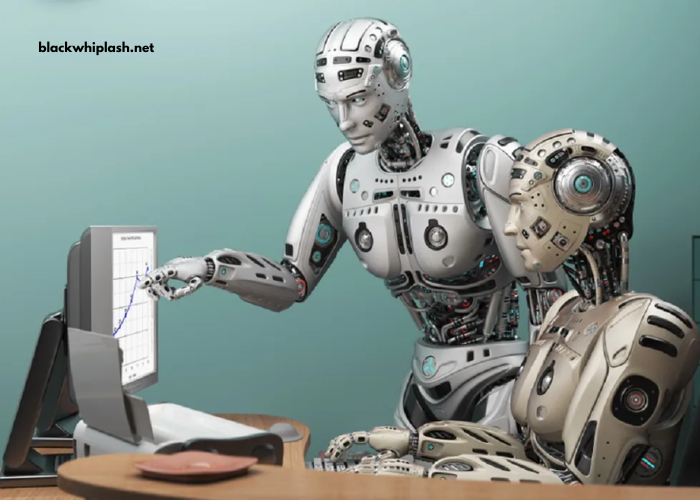Technology is rapidly evolving, and the future promises a plethora of innovative advancements that will redefine industries, economies, and daily life. From artificial intelligence to quantum computing, new technologies are emerging every year, transforming the way we interact, work, and live. This article explores the latest technology trends that are expected to shape the future, revolutionizing various sectors and paving the way for a more connected and efficient world.
The Rise of Artificial Intelligence (AI) and Machine Learning
AI’s Increasing Role Across Industries
Artificial Intelligence (AI) and Machine Learning (ML) are perhaps the most transformative technologies in today’s world. AI is already making waves in numerous sectors, such as healthcare, finance, automotive, and entertainment. With the ability to analyze vast amounts of data and make predictions or decisions, AI is poised to automate tasks, optimize workflows, and enhance user experiences. The future of AI will see the emergence of more sophisticated algorithms capable of performing complex tasks like diagnosing diseases, driving vehicles, and managing supply chains.
Key Developments in AI
In the coming years, AI will become more integrated into our daily lives, with smarter virtual assistants, personalized recommendations, and even AI-driven creativity. The development of General AI, or Artificial General Intelligence (AGI), is also on the horizon. AGI is expected to exhibit human-like reasoning and problem-solving capabilities, making it a game-changer for industries that rely on decision-making and complex problem-solving. AI’s potential is boundless, and its continued evolution will undoubtedly redefine multiple sectors.
Blockchain Technology and Decentralized Systems
The Potential of Blockchain Beyond Cryptocurrencies
Blockchain technology, which gained fame through cryptocurrencies like Bitcoin, is now finding applications far beyond the financial sector. Blockchain is a distributed ledger system that allows for secure, transparent, and tamper-proof transactions without the need for intermediaries. In the coming years, blockchain technology will revolutionize industries such as supply chain management, healthcare, voting systems, and intellectual property protection.
Decentralized Finance (DeFi)
One of the most promising applications of blockchain technology is in the realm of decentralized finance (DeFi). DeFi platforms are disrupting traditional financial systems by offering services such as lending, borrowing, and trading without relying on central authorities like banks. The growing adoption of DeFi platforms could lead to more efficient and accessible financial systems, with fewer barriers to entry and greater financial inclusion for people around the world.
The Advancement of 5G Networks
Unprecedented Speed and Connectivity
5G technology is set to revolutionize how we connect to the internet and interact with devices. The fifth generation of wireless technology promises ultra-fast download and upload speeds, reduced latency, and the ability to connect more devices simultaneously. As 5G networks continue to roll out across the globe, they will enable faster communication, enhanced mobile experiences, and open the door for innovations like the Internet of Things (IoT) and autonomous vehicles.
Impact on IoT and Smart Cities
With the advent of 5G, the Internet of Things (IoT) will experience exponential growth. The ability to connect billions of devices seamlessly will create new opportunities for smart homes, cities, and industries. Smart cities, equipped with sensors and AI-powered systems, will be able to optimize energy usage, traffic flow, waste management, and other critical functions in real-time. The increased connectivity offered by 5G will help IoT devices function more efficiently, enabling a more connected and intelligent world.
Quantum Computing: Unlocking New Frontiers
What is Quantum Computing?
Quantum computing is a revolutionary technology that leverages the principles of quantum mechanics to perform complex calculations at speeds far beyond the capabilities of classical computers. While quantum computing is still in its early stages, it holds immense promise for industries like cryptography, medicine, logistics, and artificial intelligence.
The Future Impact of Quantum Computing
As quantum computers become more powerful and accessible, they will have the potential to solve problems that were previously deemed insurmountable. For example, quantum computing could revolutionize drug discovery by simulating molecular structures at an unprecedented scale, leading to faster development of life-saving medications. In cybersecurity, quantum encryption methods could provide nearly unbreakable data protection. Though we are still years away from widespread quantum computing adoption, its potential to reshape industries is undeniable.
Augmented Reality (AR) and Virtual Reality (VR)
Transforming Experiences in Entertainment and Education
Augmented Reality (AR) and Virtual Reality (VR) are two technologies that are changing the way we experience the world. VR immerses users in a fully digital environment, while AR overlays digital content onto the real world. Both technologies are poised to have a major impact on sectors such as entertainment, gaming, healthcare, and education.
In the entertainment industry, VR will provide more immersive gaming experiences and virtual concerts, while AR will enhance experiences in retail and advertising. In education, AR and VR can create interactive, hands-on learning environments that engage students in ways traditional teaching methods cannot. With advancements in both hardware and software, AR and VR technologies are expected to become mainstream in the coming years, transforming industries and daily life.
Robotics and Automation
The Future of Work: Robots in the Workplace
Automation and robotics are changing the way businesses operate, and the future of work will be significantly influenced by these technologies. Robotics, along with AI and machine learning, is automating repetitive tasks across industries such as manufacturing, logistics, and agriculture. Robots are becoming increasingly sophisticated, capable of performing complex tasks with precision and efficiency. For instance, autonomous delivery drones and robots are revolutionizing logistics and supply chains, while robots in factories are optimizing production lines.
Impact on Employment and Skill Development
While automation and robotics are streamlining processes and increasing productivity, they also raise concerns about job displacement. The shift toward automated workplaces requires workers to adapt by acquiring new skills in areas like AI programming, robotics maintenance, and data analysis. The future workforce will need to be more agile and ready to embrace new roles that emerge as technology continues to advance.
Sustainability and Green Technologies
Addressing Climate Change with Technology
As concerns about climate change grow, there is a rising demand for sustainable and eco-friendly technologies. The future of technology will be shaped by innovations aimed at reducing carbon emissions, conserving resources, and promoting sustainability. Green technologies, such as renewable energy sources (solar, wind, geothermal) and energy-efficient systems, are already playing a vital role in mitigating the impact of climate change.
Advances in Energy Storage and Clean Technologies
One of the key challenges of renewable energy is storage. As solar and wind power generation increase, efficient energy storage solutions are crucial to maintaining a consistent supply of clean energy. Innovations in battery technology, such as solid-state batteries and graphene-based batteries, are helping address these challenges by improving storage capacity and reducing energy waste. Additionally, technologies like carbon capture and storage (CCS) are being developed to reduce the carbon footprint of industries and power plants.
Biotechnology and Healthcare Innovations
Personalized Medicine and Genomics
Biotechnology is another field that is rapidly advancing, and it holds the potential to revolutionize healthcare. One of the most significant developments in this area is personalized medicine, which tailors treatments to an individual’s genetic makeup. The field of genomics is unlocking the secrets of our DNA, allowing for more accurate diagnoses and targeted therapies for diseases like cancer, diabetes, and genetic disorders.
The Rise of Bioprinting and Gene Editing
Bioprinting, a form of 3D printing used to create tissues and organs, is also on the rise. In the near future, bioprinting could enable the creation of custom-made tissues for transplant patients, potentially alleviating the shortage of donor organs. Meanwhile, gene editing technologies like CRISPR are enabling scientists to alter genes with unprecedented precision, offering the possibility of curing genetic diseases and even enhancing human capabilities.
Conclusion
The technology trends that are shaping the future are vast and multifaceted, ranging from artificial intelligence and blockchain to quantum computing and biotechnologies. These innovations will drive the next wave of societal and economic transformations, creating new opportunities and challenges in equal measure. As we continue to witness rapid advancements, it is clear that the technologies of tomorrow will be more interconnected, efficient, and intelligent, offering a glimpse into a future that is both exciting and transformative.
Understanding and embracing these trends will be essential for businesses, governments, and individuals looking to stay ahead in an increasingly technology-driven world. As we look to the future, one thing is certain: technology will continue to evolve at an unprecedented pace, and those who adapt will be poised to thrive in this new era.





